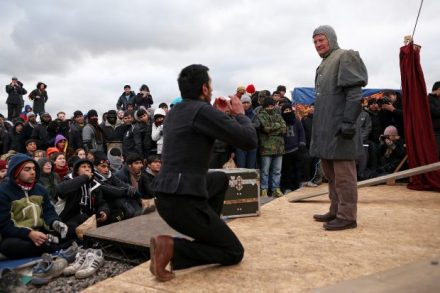A great awakening
One afternoon in August 1978, Geoffrey Howe and Leon Brittan were flying from Beijing to Shanghai. They were on the last leg of what was for both of them the first of many official visits to China. Soon they would be ministers in Margaret Thatcher’s first government, but at the time they were still in opposition. As first secretary in the British embassy, I was accompanying them, and I told them that I had heard on the grapevine that Holy Trinity’s Anglican cathedral in Shanghai was in the process of being reopened after 12 years in which every place of worship in China had been closed, and every faith persecuted.




















